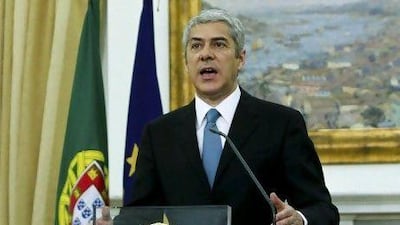The European Central Bank (ECB) has raised interest rates by a quarter of a point to 1.25 per cent across the euro zone in an effort to fight inflationary pressures.
The increase, the first since the 2008 financial crisis, comes only a day after Portugal finally asked for EU aid for its struggling economy.
Jean-Claude Trichet, the ECB president, said the move did not necessarily open the way for further rises.
But Mr Trichet conceded that the bank was concerned about "a price shock from oil and commodities. It's our clear message that we don't accept second-round effects.
"We do what we have to do even if it's difficult."
The fortunes of the euro-zone economies vary dramatically. Germany has experienced a strong rebound in growth, thanks to surging export demand.
But Greece, Ireland and Portugal remain shackled with high debt and unemployment, and tepid consumer demand.
The euro zone is the first of the world's developed economies to raise rates since the global downturn.
The move indicates the depth of its concern about inflation against a backdrop of rising oil and commodity prices.
An inflation forecast for the euro zone was recently upgraded to 2.2 per cent by the European Commission.
Portugal and other weaker economies are concerned further rises in interest rates could hamper their prospects for recovery.
The euro dropped against the US dollar after the ECB's move.
"The [rate] rise was in line with expectations but it will not make the situation any easier for periphery countries like Portugal, Ireland and Greece," said Tim Fox, the chief economist at Emirates NBD.
Portugal said it planned to make a formal request for assistance later yesterday but did not say how much it required.
Economists have not ruled out further debt problems in the euro zone.

